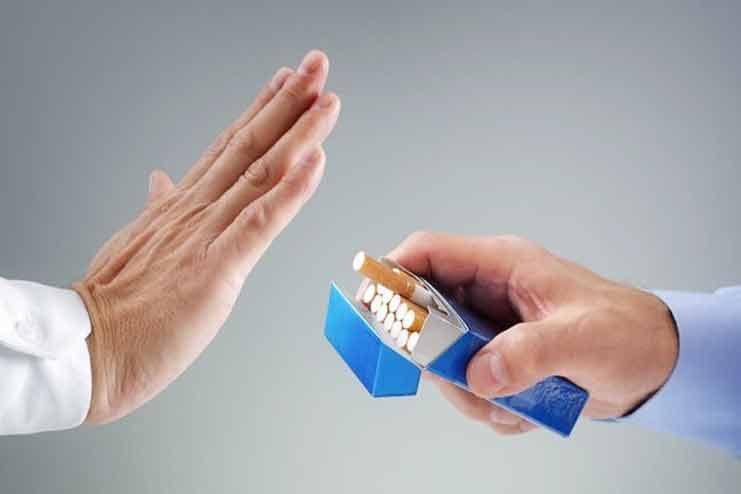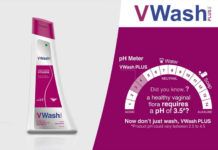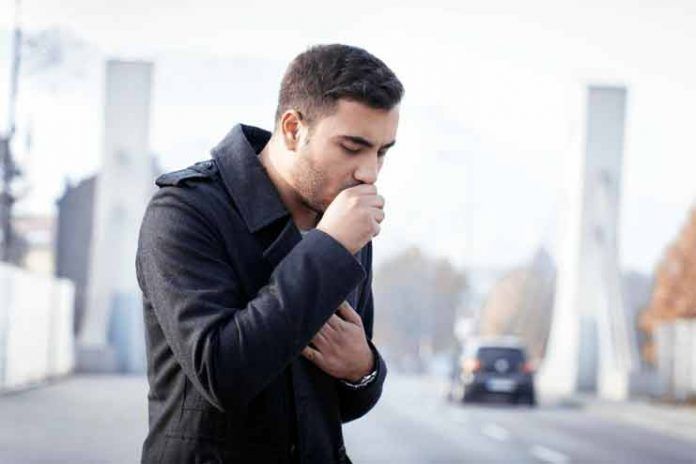Affiliate Disclaimer
Some links in this article are affiliate links. We may earn a small commission if you make a purchase through these links, at no extra cost to you. We only recommend products we find useful to our readersMany assume that their breathlessness, cough, or exhaustion as a normal part of life. But if they are frequently bothering, it may be COPD – Chronic obstructive pulmonary disease. Yes! around 24 million people suffer from COPD in the US, while as many as half of them are unaware of their condition. Don’t let this happen to you or your loved ones. Be informed, stay healthy!
What is Chronic Obstructive Pulmonary Disease (COPD)?
Chronic obstructive pulmonary disease (COPD) is a group of progressive lung diseases like chronic bronchitis, emphysema, etc. Emphysema interferes with outward air flow by slowly destroying air sacs in lungs. Bronchitis causes accumulation of mucus by causing inflammation and narrowing bronchial tubes. COPD is a non contagious lung disease.
What Are Different Stages of COPD?
The extent of the COPD is usually measured by the stage of this lung disease. Different stages of COPD includes:
Stage 0 – At risk:
- You may be coughing and noticing mucus. This is a warning stage which requires immediate attention.
- If you are a smoker, stop now, reassess your diet and follow exercise routines.
Stage 1 – Mild:
- Mild symptoms may show up like chronic cough and increased mucus production.
- Doctor may suggest a bronchodilator at this stage.
Stage 2 – Moderate:
- Noticeable symptoms are observed like shortness of breath.
- A long-acting bronchodilator is needed at this stage.
Stage 3 – Severe:
- More prominent symptoms are observed at this stage and the doctor may recommend medications like corticosteroids or oxygen therapy.
Stage 4 – Very severe:
- Symptoms progress during this stage of the disease.
- If they flare-up, it could be life-threatening. The patient may need surgical treatment.
What Are The Causes or Risk Factors For COPD?
Smoking is the main cause for COPD, besides long-term exposure to chemical irritants. Around 90% COPD patients are smokers or former smokers. Among smokers, around 20% develop COPD. The risk is even higher in people with asthma.
One can also develop COPD due to
- Exposure to chemicals and fumes
- long-term exposure to air pollution and inhaling dust
- breathing fumes from cooking and heating fuel
- deficiency in a protein called alpha-1-antitrypsin, which causes deterioration of lungs and liver
Symptoms Of COPD Include:
COPD begins with mild symptoms, so chances are they may be dismissed as common cold. While the symptoms begin with the shortness of breath in the beginning, may proceed gradually to difficulty with breathing.
Early COPD Symptoms:
- occasional shortness of breath (may be following exercise)
- mild cough
- Frequent need to clear throat
Later, Symptoms Get Progressively Worse:
- wheezing and tightness in the chest
- exacerbations, or flare-ups of severe symptoms
- frequent shortness of breath
- wheezing, or noisy breathing
- chronic cough, with or without mucus
- colds, flu, respiratory infections
- exhaustion
- swelling of the feet, ankles, or legs
- weight loss
As the disease progresses, more complications may evolve like heart problems, high blood pressure in lung arteries, lung cancer and depression.
Seek immediate medical attention whenever you observe:
- bluish or gray fingernails or lips
- trouble catching breath or unable to talk
- feel confused or faint
- heart races
How to Diagnose COPD:
COPD diagnosis is based on symptoms, a physical exam, and test results. The diagnosis includes blood tests, imaging tests, and lung function tests. As apart of the primary procedure, physician seeks information like, if
- you’re a smoker or former smoker
- exposed to lung irritants or secondhand smoke
- Family history of COPD/ asthma/ other respiratory conditions
- you take OTC medications
The doctor may then ask for tests to get a complete picture:
- A spirometry is a noninvasive test to assess lung function.
- Imaging tests include a chest X-ray or CT scan to look at lungs, blood vessels, and heart.
- An arterial blood gas test to measure blood oxygen levels.
The tests will help the doctor determine if you are suffering with COPD, asthma or any other heart/lung disease. The healthcare team includes pulmonologist, physical and respiratory therapists.
Is COPD Difficult To Cure?
COPD cannot be cured. However, treatment can improve the quality of life, by easing symptoms and lessening the complications. If left untreated, COPD may lead to respiratory infections and heart problems. The treatment includes: oxygen therapy, medications, and surgery.
Medication: Medications like bronchodilators help relax the airway muscles to help breathe easy. Glucocorticosteroids help reduce inflammation in the airways. The medications are administered through inhalers. Vaccines like tetanus booster, pneumococcal vaccines, flu shots help protect from whooping cough or pertussis.
Oxygen therapy: Inhaling oxygen through nasal prongs or mask can help breathe better. Portable units are available in the market.
Surgery: Surgery is the last option if all other treatments have not worked. Bullectomy is a type of surgery where the surgeons remove large air from the lungs. In the lung volume reduction surgery, damaged lung tissue is removed. In rare cases, lung transplant is an option.
People can feel better and can slow down the disease progression with consistent medical care as well as by the change in their lifestyle.
Tips To Make Lifestyle Changes To Improve COPD
Lifestyle changes can work as natural therapy to help alleviate COPD symptoms or prevent the chances COPD development. Home remedies helpful in managing COPD disease include:


- Quitting smoking, approach doctor for sessions
- Avoiding secondhand smoke and chemical fumes
- Taking in right nutrition
- Staying away from dust and air pollution
- Exercising upto the desired extent
- Staying active and increasing fitness levels
Aqua- walking and swimming may help to stay fit. Overweight means lungs have to work harder, so keep your body weight in control. Manage stress and try to avoid panic attacks and anxiety. Pursed-lip and diaphragmatic breathing exercises too can help big time. Supplements like Omega 3, amino acids, Antioxidant vitamins can be added to the diet after doctor’s approval. Essential oils like eucalyptus oil, mrytol and orange oil maay help reducing COPD symptoms
In short, the severity of COPD depends upon the extent of the lung damage sustained by the patient. COPD needs lifelong disease management. Thoroughly follow the advice given by the healthcare team to make your daily chores and activities easy. Never forget that your lungs are weak and so avoid anything that makes them even more weaker.




























